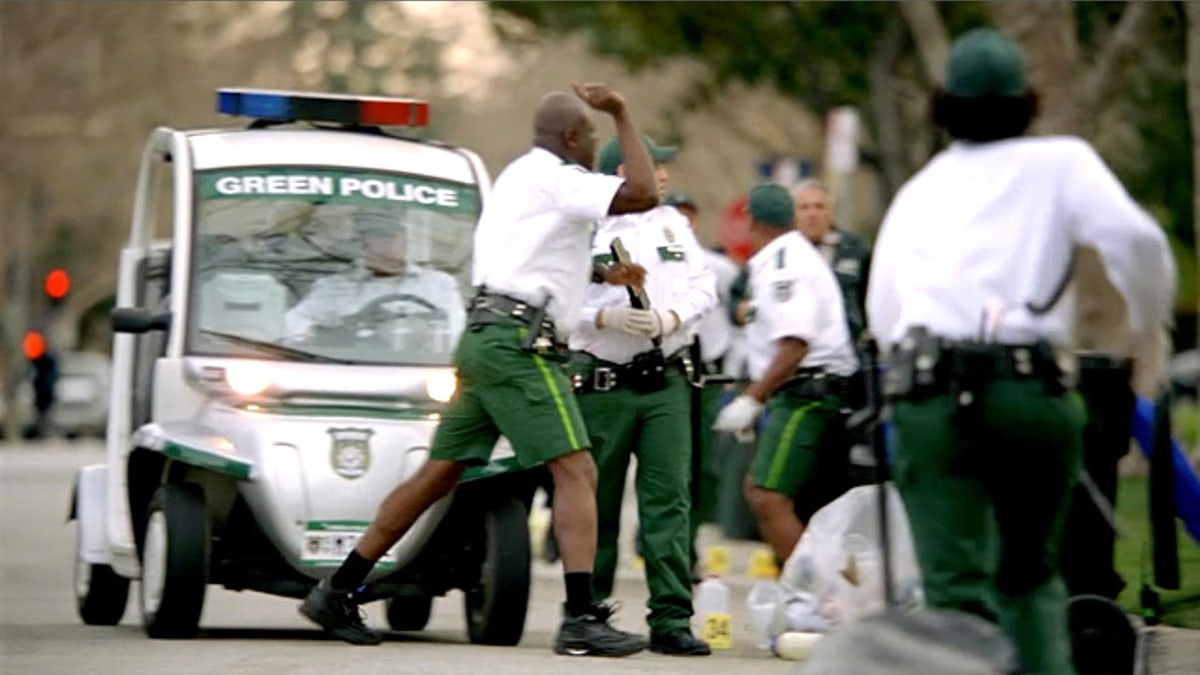
A commercial for Audi mocked consumers for failing to recycle (and endorses the company's diesel-powered car). But the "green police" may be more real than they know. (Audi)
Are the trash police winning the war for privacy?
It would appear so. As we reported six months ago, cities such as Cleveland, Grand Rapids, Michigan, and Dayton, Ohio are using RFID tags and other technology aids to monitor (and sometimes reward) recycling. It turns out: the programs are attracting citizens and upping recycling efforts.
And, privacy experts say the programs are gaining traction because cities are profiting from the increased recycling, which is good for the environment. The main problem: what you do on your own corner of suburbia is supposed to be private, right? And, in a down economy, the experts say these new programs are too costly when you consider the overall expense in staff and infrastructure.
Belinda Saldaña, the deputy press secretary for the City of Cleveland, told FoxNews.com that the program is about to enter a roll-out phase in September after an initial pilot. The city first distributed 15,000 retrofitted bins with RFID tags last year. Now, they will distribute another 25,000 bins.
According to Saldaña, the city is paid about $63 per ton for recycled material. They save about $34 per ton by not having to dump the garbage in a landfill. She says the city is on track to recycle more material in 2011 than in 2010, and citizens are anxious to sign up to the program.
The RFID tags can report a failure to recycle, and fines run about $100. In some cases, the RFID tags are used to weigh your recycle bin and report non-compliance back to city officials.
That sounds a bit like Big Brother is winning the privacy war, says privacy expert Harry Lewis, a computer science professor at Harvard.
“Anything like this is dreadful,” says Lewis. “It would not be the first example of a technology that in itself has no moral direction but government decides to use in a way that erodes civil rights.”
“These programs will not save cities money,” added Dr. Marcella Wilson, a privacy consultant, speaking to FoxNews.com. “It costs money to put the technology in place, install software applications, and set up a Web site and maintain it. Plus, you have to pay the people who are going to monitor [citizens]. You have to pay to enforce this program if there are offenders.”
Lewis says the recent trend with municipal trash removal is to offer incentives to citizens. For example, Grand Rapids has the Mygrcitypoints.com program. Recyclebank.com keeps track of your recycling and send cash rewards. The freebies might include gratis trash collection or virtual badges and online awards to encourage participation from those who might normally be dissuaded.
In the UK, Newcastle University (www.ncl.ac.uk) has started a pilot program with five volunteer families. A webcam is installed in a garbage can lid which snaps a photo and uploads the results to Facebook for anyone to inspect. The idea is that a city would then rate citizens on how well they recycle.
“I can't imagine people educating themselves about good recycling practices by browsing images of other people's trash cans,” says Lewis, who said the program sounds overly intrusive.
Mari J. Frank, a privacy expert and book author, told FoxNews.com the Newcastle program is quite worrisome. “Having your trashed photographed and uploaded to Facebook? What about used tampons, condoms, used medical devices and medicines? What if someone other than the family throws something in the trash bin without the family's permission?” she wondered.
Frank called the trash police trend a “reality show mindset” where no one seems to care about privacy. Other privacy experts are concerned that successful programs will breed more intrusions.
“If this were to become a law in the UK, I believe it is an intrusion into their personal live and an invasion of their privacy,” says Wilson.
Richard Raysman, a partner at the Holland & Knight law firm, says a better approach is for cities to collect data about recycled goods without compromising city resident’s privacy. Better educational programs could lead to just as much recycling without the Big Brother elements.
“Rather than using punishment to encourage the desirable behavior of recycling, a municipality might gather data from garbage collection and use it to educate the public or determine what neighborhoods have the lowest and highest rates of recycling,” Raysman.
“In today's economic environment, city residents would presumably respond to statistics on the cost of garbage collection, and how a higher recycling rate can increase a town's revenue, lower its hauling costs, and stem the increase in local property taxes,” he says.
